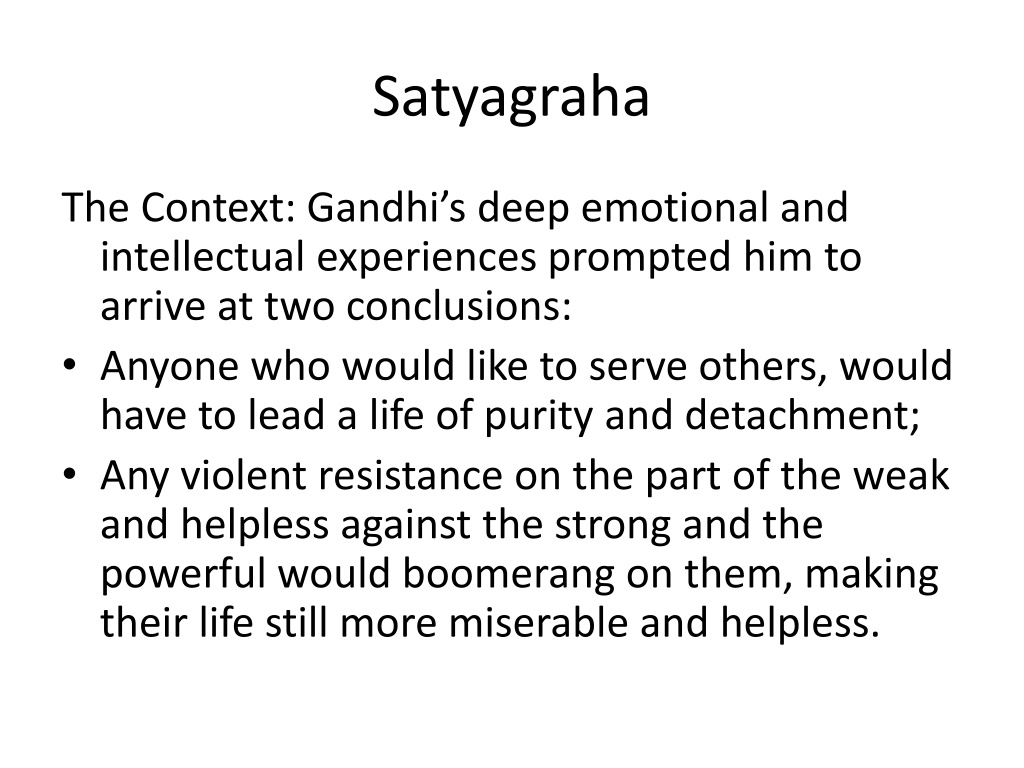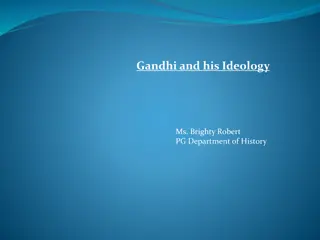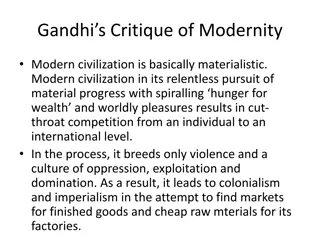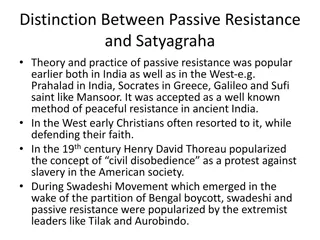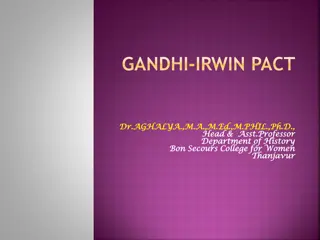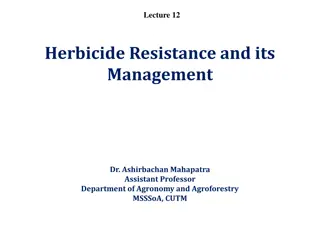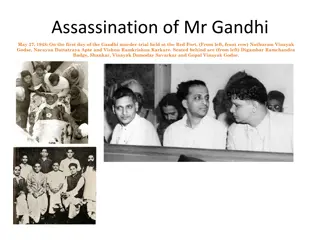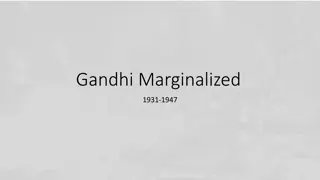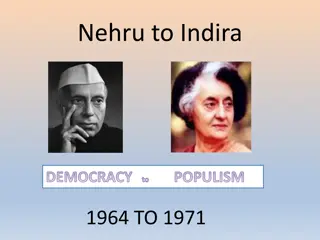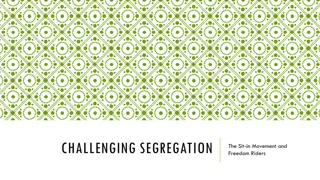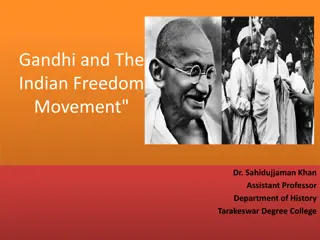Understanding Satyagraha: Gandhi's Nonviolent Resistance
Gandhi's concept of Satyagraha emphasized truth and nonviolence, leading to passive resistance against injustice. Rooted in purity and detachment, Satyagraha uplifts both the oppressed and oppressors, offering a dynamic and powerful means to confront evil without bitterness or revenge.
Download Presentation

Please find below an Image/Link to download the presentation.
The content on the website is provided AS IS for your information and personal use only. It may not be sold, licensed, or shared on other websites without obtaining consent from the author. Download presentation by click this link. If you encounter any issues during the download, it is possible that the publisher has removed the file from their server.
E N D
Presentation Transcript
Satyagraha The Context: Gandhi s deep emotional and intellectual experiences prompted him to arrive at two conclusions: Anyone who would like to serve others, would have to lead a life of purity and detachment; Any violent resistance on the part of the weak and helpless against the strong and the powerful would boomerang on them, making their life still more miserable and helpless.
Origin of Satyagraha in South Africa The Draft of a new law in Transvaal which required every Indian who were of more than eight years of age (both male and female) to obtain a new certificate of registration. Led by Gandhi Indians held a meeting on 11 September, 1906and decided to defy the law. To capture the spirit of the Indian non-violent resistance to the discriminatory law the term Sadagraha was suggested by Maganlal Gandhi, a nephew of Gandhi. It was changed to Satyagraha by Gandhi in September, 1907.
Meaning of Satyagraha It is a compound word consisting of Satya and agraha meaning insistence on truth or firmness for truth . Satyagraha is primarily rooted in truth and non- violence- truth synonym for God and non- violence in thought, words and deeds. It is putting the soul force against the brute force . It is much more than boycott and passive resistance as it means willing to undergo self invited sufferings with soulful refusal to accept any act of injustice.
Strengths or Merits of Satyagraha Leaves no trail of bitterness and future revenge. Based on the principle of resisting the evil and not the evil-doers. Thus uplifts all parties involved in a dispute both morally and spiritually. It is a living, dynamic and growing concept: it is not a static and stagnant principle and thus it acquires new shapes and shades as per the needs and challenges of the situation. If and when it becomes a universal force, Gandhi was very confident that it would be a sovereign weapon for doing away with all forms of injustice.
The Philosophical Basis of Satyagraha No one is beyond redemption as every person carries a speck of divinity within himself/herself. Hence, a self-suffering satyagrahi would ultimately succeed in touching the soul of the opponent. Gandhi has an organic view of the society and as such all its members are part of an organic whole- society is essentially organic in its nature and structure. i. Society is not a collection of self-seeking, atomized individuals- due to social inter-dependence every one is responsible for every one s deeds and misdeeds. ii. It could be based on mutual cooperation and respects free from domination and exploitation. iii. An individual is not ego-centric but is rather endowed with an extended self .
The Philosophical Basis of Satyagraha (contd.) iv. Hence the interests and aspirations of individuals and the society are not mutually exclusive Thus Gandhi, in his satyagraha, combines the greatest love with the greatest resistance to wrong. Gandhi s theory of satyagraha is also based on his spiritual understanding that there exists a morally high cosmic law which transcends the entire idea of secular law and authority: i. State is a soulless machine rooted primarily in violence but, individual has a soul which is spiritually committed to obey the cosmic laws. ii. Hence the institution of state could not demand total obedience from its citizens as it lacks moral authority. Another philosophical foundation of satyagraha lies in the symbiotic relationship between means and end. It is ultimately the means that decides the nature of the end. i. Strong faith in the law of karma ii. The relationship between action and fruits is organic and symbiotic iii. The theory of niskaam karma (dispassionate action) iv. Moral means are the ends in themselves.
